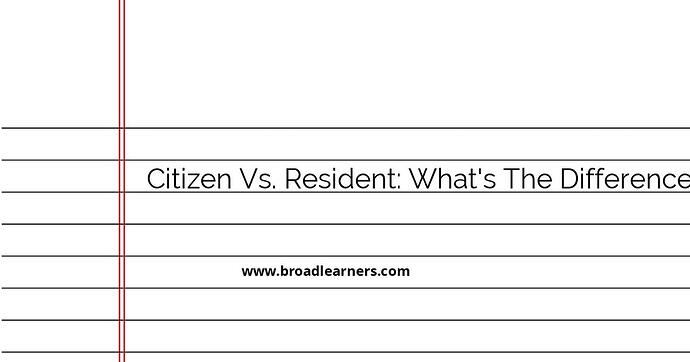Understanding the difference between citizen and resident is essential to grasp the concept of nationality and legal status in a country.
Citizen: A citizen is a person who is recognized as a legal member of a particular country by birth or naturalization. Citizens enjoy specific rights and duties that are not available to non-citizens. These rights may include the right to vote, hold public office, and receive diplomatic protection from the government. Citizenship is considered a legal status that comes with both privileges and responsibilities.
Resident: A resident, on the other hand, refers to an individual who lives in a particular place, such as a city or country, for an extended period. Residency is often based on legal permission, such as a visa or permit, granted by the government of the country. Residents may or may not hold citizenship in that country. They have the right to reside in the place where they are recognized as residents, but they may not have the same political rights and duties as citizens.
In summary, while citizens are legal members of a country with specific rights and duties, residents are individuals who live in a place for an extended period, but may not necessarily have the full rights and obligations of citizenship.
Examples:
- Citizen: John was born in the United States and is a citizen of the country. He has the right to vote and run for public office.
- Resident: Maria moved to France for work and obtained a residency permit. She is a resident of France but is not a citizen, so she cannot participate in French elections.
Did I miss anything? Respond below
